
Dr. Lane is an award-winning scholar and expert in the emerging relationship between higher education, policy, politics, and globalization. He is also an associate professor at the University at Albany (SUNY), a senior fellow at the Rockefeller Institute of Government, and faculty for Penn State’s Academic Leadership Academy and SUNY’s Summer Leadership Institutes.
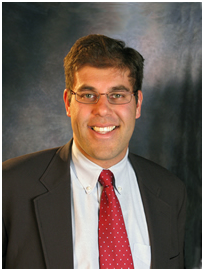
All of my research, writing, and teaching seeks to explain these transformations–their diverse origins, their contradictory contours, and their long-lasting effects. My scholarship is an extended inquiry into the workings of power at local and international levels, and the interactions across these levels. Like other historians, I treat power as contingent, context-dependent, and often quite elusive.
Like practitioners of politics, I view power as essential for any meaningful achievement, especially in the realms of social justice and democratization. My hope is that my work will reach a broad and diverse audience of citizens. Scholarship cannot substitute for real-lived experience, but I believe it can enhance our contemporary understanding of the choices we confront in the allocation of our resources, the structuring of our communities, and the judgment of merit. In this framework, international, transnational, and global history should contribute to better thinking about current international, transnational, and global problems.”
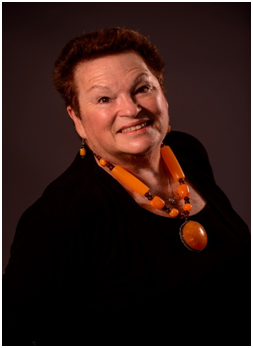
In 1999, she launched NetGeneration of Youth (NGY) as a digital empowerment and youth leadership initiative addressing media literacy, civic engagement and youth expression. Since then, she has promoted the NGY model with organizations in the US and abroad who share a commitment to cultivating youth as 21st century leaders who are civically engaged, culturally aware, empowered with global competencies & committed to shaping a positive global future. She has provided scholarships valued at $340,000 to NGY youth from underserved communities to attend National Student Leadership Summer Institutes at Universities
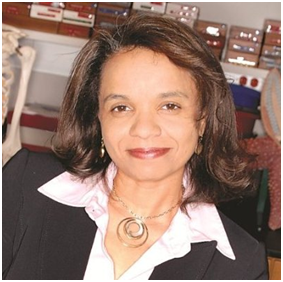
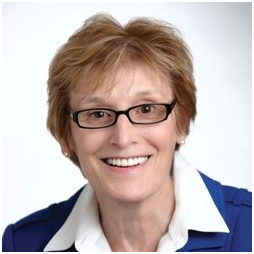
Sally Prouty, Interim CEO at the National Conference on Citizenship, leads work that builds on a ten year research project studying civic health as represented in Civic Health Index reports produced cooperatively with partners across the country. Communities with strong indicators of civic health have higher employment rates, stronger schools, better physical health, and more responsive governments. NCoC is dedicated to strengthening civic life in America based on the belief that every person has the ability to help their community and country thrive.
Sally has served as Interim Director of PACE, Philanthropy for Active Civic Engagement where she continues as Senior Fellow, as CEO of The Corps Network, a national association representing service and conservation corps, as Director of the Ohio Civilian Conservation Corps and as Deputy Director of the Ohio Department of Natural Resources. In addition to 30 years in the public, private and non-profit sectors, Sally has held volunteer positions at the local, state, national and international levels including service on a city board of education and on the founding board of a charter school. She currently serves on the advisory board for Community Renewal International.
Sally is passionate about providing opportunity for youth and young adults including those who have had difficult life experiences and, absent support, are unlikely to move into productive adulthood. Her experience combines health and wellness, youth development, conservation and natural resources management and civic engagement – all through the lens of equity, diversity and inclusion.
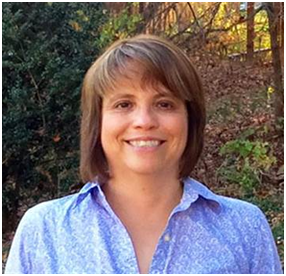
In 2010, she was a visiting scholar at the Center for the Study of Race, Ethnicity and Gender in the Social Sciences (REGSS) at Duke University as a Ford Foundation Post-Doctoral Fellow.
Dr. Rouse’s research and teaching interests focus on Latino politics, minority politics, legislative and political behavior, institutions, state politics, immigration and network analysis. Her dissertation on Latino representation was funded by a grant from the National Science Foundation.

Following his graduation from Brandeis, he attended St. Antony’s College, Oxford University, on a Marshall Scholarship. In 1978, he received an M.Phil. degree in modern Middle East studies from Oxford and was offered a job by the legendary New York Times editor A. M. Rosenthal. He specialized in OPEC and oil-related news, which had become an important topic as a result of the Iranian revolution In January 1989, Friedman started a new assignment as the Times’s Chief Diplomatic Correspondent, based in Washington, D.C. During the next four years he traveled more than 500,000 miles, covering Secretary of State James A. Baker III and the end of the Cold War. “I was very lucky to be on Jim Baker’s plane to have a front-row seat for the end of the Cold War, the fall of the Berlin Wall, the collapse of the Soviet empire, the first Gulf War, and the aftermath of Tiananmen Square.”
In November 1992, Friedman shifted to domestic politics with his appointment as the Times‘s Chief White House Correspondent. He covered the post-election transition and the first year of Bill Clinton’s presidency.
In January 1994, he became the Times‘s International Economics Correspondent, covering the nexus between foreign policy and trade policy. “Again, I got lucky,” he recalled. “It was the start of the post–Cold War era: the walls were coming down all over the world. The Internet and World Wide Web were being born, and so too was this new phenomenon called ‘globalization.’”

As Chair of the Governmental Operations Committee where he has sought to root out patronage, de-privatize government, eliminate billions in waste, expand elections, and to use technology to improve access to government.
He has become a leading advocate for education, affordable housing, public health, sustainable development and transportation improvements and safety. His office is open and transparent, with constituents invited to decide on how to spend one million dollars on local projects in the district as well as to join him in a conversation on the First Friday of each month, or he will go to them if they can gather ten neighbors for “Ben In Your Building.”
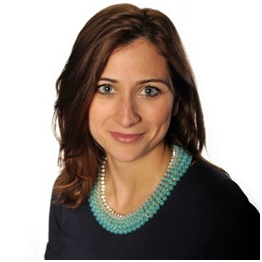
Eleni is herself an entrepreneur having created or co-founded a nonprofit organization, a consulting practice and new business practices in established firms. She has extensive experience in nonprofit management and board governance.
Prior to the NYCEDC, Elenispent most of her career in federal and state public policy advocacy and research in areas including community development, banking, housing, labor and immigration. She held leadership positions at The Opportunity Agenda and the Business and Labor Coalition of New York, run political campaigns and provided market research and strategy consulting for elected officials and private sector companies. Her work spans 15 years in Washington, D.C., New York, London and Athens. Eleni has published extensively studies on social issues and lectures frequently at graduate schools in New York City. She holds a Master’s Degree in American Politics from New York University and a Bachelor’s Degree in Communications and Mass Media Studies from the National University of Athens. She is a graduate of the American Express Fellowship for Emerging Nonprofit Leaders.

He also served in the Administration as Senior Advisor for Healthcare, working on information technology. Previously, John worked in the investment industry for Credit Suisse and Lehman Brothers.
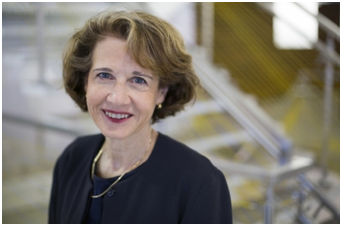
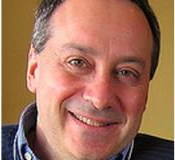
He is the author or editor of eight books, most recently A Lever and a Place to Stand: How Civic Tech Can Move the World (Personal Democracy Media, 2015) and The Big Disconnect: Why the Internet Hasn’t Changed Politics (Yet) and in the spring of 2012 taught “The Politics of the Internet” at Harvard’s Kennedy School.

After three fantastic semesters growing DFA in Blacksburg, Rob is excited to use the lessons he learned to help other schools spread their unique design cultures in their own cities and towns.
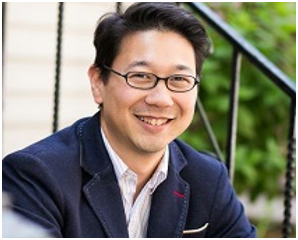
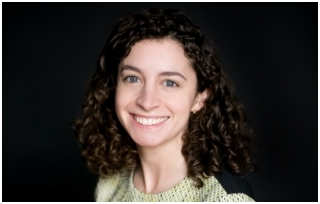
In that role, she developed and executed grant making strategies for environmental conservation and managed the grant portfolios for conservation in Myanmar and the Gulf of California Region of Mexico. Prior to her work at the Trust, Rosalind served as Field Coordinator at San Francisco Baykeeper where she led volunteer programs, coordinated scientific monitoring, and advocated for protective environmental policies. Rosalind holds a Master of Science from Fordham University where she studied changing patterns of biodiversity in New York City area forests.
She also holds a Bachelor’s degree in environmental science from Colby College in Waterville, ME.

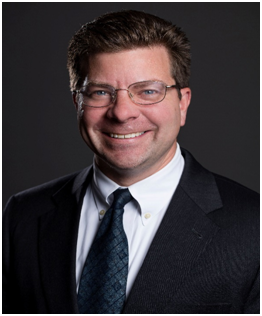
DJ is also the organizer of the New York Virtual Reality Meetup (NYVR) currently the largest VR meetup in the world with over 4700 members.

Whether he is showing how companies add value to millennials’ everyday life through media, working with MasterCard to launch the “commerce for every device” Internet of things program, or showcasing 3M’s sustainable solutions at SXSW to help the company resonate with millennials, Aaron has a track record of increasing clients’ relevance with this large and skeptical audience.
As an expertise leader at Ketchum, Aaron has a unique view of what brands are looking for — and how millennials are reacting. Many hours with research reports has given him a front-row seat on the “what makes a millennial a millennial?” debate and fueled the insights he takes to Ketchum account directors to ensure that everything from media training to program execution will work.
This insight also powers his presentations at industry events such as Youth Marketing Summit, InterOp ITX, and Luxury Daily.



Follow our social channels